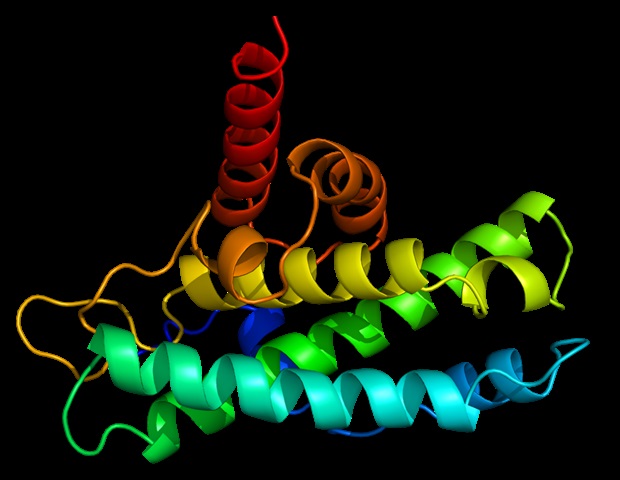Health
Hidden Protein Particle in COVID Virus Paves Way for Better Vaccines

A newly discovered protein particle within the SARS-CoV-2 virus may significantly enhance the effectiveness and longevity of COVID-19 vaccines. Researchers from La Trobe University in Australia and Kumamoto University in Japan identified that the immune system responds robustly to a specific internal protein from the virus. This protein mutates less frequently than the surface-spike protein currently targeted by existing vaccines, potentially leading to more durable vaccine solutions.
Published in the journal Nature Communications, the research reveals that these protein particles, known as peptides, surface on infected cells through an immune molecule called HLA-C. This mechanism allows killer T cells to recognize and eliminate the virus effectively. Leading the study, Distinguished Professor Stephanie Gras, Deputy Director of the La Trobe Institute for Molecular Science (LIMS), emphasized the discovery’s implications for future vaccine development.
Professor Gras stated, “Currently, vaccines target the spike proteins that decorate the surface of the virus – but they mutate frequently as they are constantly under pressure from our immune cells. This means we might need a new vaccine for each new variant.” In contrast, the internal protein, which forms part of the virus’s protective shell, shows a much lower mutation rate. She compared this protective structure to the yolk of an egg, indicating its stability could guide the development of vaccines that remain effective as the virus evolves.
The potential for a longer-lasting vaccine could reduce the need for frequent booster shots, making it more manageable for the population. Professor Gras continued, “The more people get vaccinated, the more we protect the population, reducing the death toll and the impact of the infection itself.” This research also addresses the growing concern over Long COVID, which affects approximately 10 percent of the population. More infections increase the likelihood of developing this condition, underscoring the need for effective vaccination strategies.
The research team included Dr. Demetra Chatzileontiadou, Dr. Janesha Maddumage, and PhD candidate You Min Ahn, and was funded through Professor Gras’s National Health and Medical Research Centre (NHMRC) Leadership Investigator Grant and her Medical Research Future Fund (MRFF) grant aimed at COVID-19 investigation. Collaboration with Associate Professor Chihiro Motozono and Yoshihiko Goto from the Joint Research Center for Human Retrovirus Infection at Kumamoto University further enriched the study, which utilized data from the Australian Synchrotron.
Looking ahead, Professor Gras is set to lead a newly established research centre at La Trobe University focusing on the causes of Long COVID and other debilitating post-viral conditions, such as Myalgic Encephalomyelitis/Chronic Fatigue Syndrome (ME/CFS) and Multiple Sclerosis (MS). The Post-Acute Viral Infection diseases Group (PAVING) Centre of Research Excellence has secured $3 million in federal funding from the NHMRC to further this important research.
As the global community continues to grapple with the impacts of COVID-19, these findings could herald a new era of vaccine development, enhancing the ability to combat not only current strains but also future variants of the virus.
-

 Entertainment3 months ago
Entertainment3 months agoAnn Ming Reflects on ITV’s ‘I Fought the Law’ Drama
-

 Entertainment4 months ago
Entertainment4 months agoKate Garraway Sells £2 Million Home Amid Financial Struggles
-

 Health3 months ago
Health3 months agoKatie Price Faces New Health Concerns After Cancer Symptoms Resurface
-

 Entertainment3 months ago
Entertainment3 months agoCoronation Street’s Carl Webster Faces Trouble with New Affairs
-

 Entertainment3 months ago
Entertainment3 months agoWhere is Tinder Swindler Simon Leviev? Latest Updates Revealed
-

 Entertainment4 months ago
Entertainment4 months agoMarkiplier Addresses AI Controversy During Livestream Response
-

 World2 weeks ago
World2 weeks agoBailey Announces Heartbreaking Split from Rebecca After Reunion
-

 Science1 month ago
Science1 month agoBrian Cox Addresses Claims of Alien Probe in 3I/ATLAS Discovery
-

 Health4 months ago
Health4 months agoCarol Vorderman Reflects on Health Scare and Family Support
-

 Entertainment4 months ago
Entertainment4 months agoKim Cattrall Posts Cryptic Message After HBO’s Sequel Cancellation
-

 Entertainment2 weeks ago
Entertainment2 weeks agoCoronation Street Fans React as Todd Faces Heartbreaking Choice
-

 Entertainment3 months ago
Entertainment3 months agoOlivia Attwood Opens Up About Fallout with Former Best Friend





















